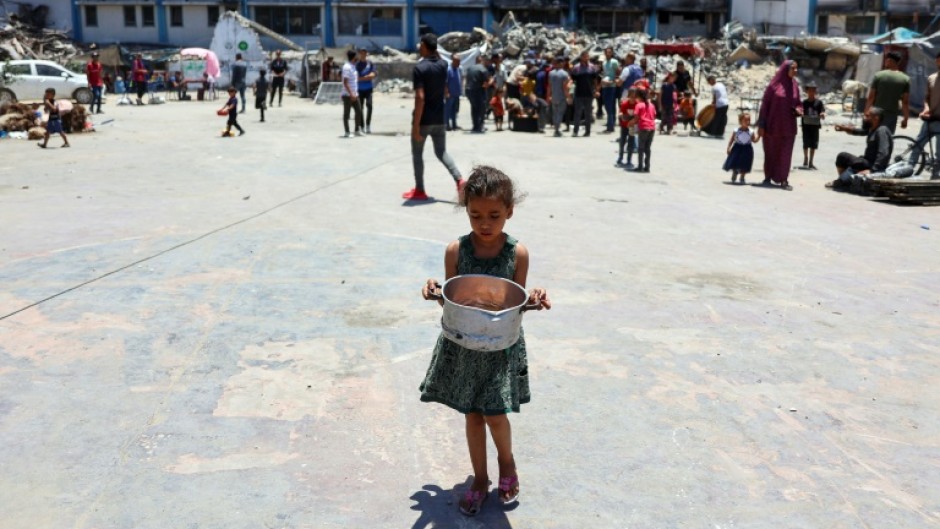Israel struck Gaza on Monday and witnesses reported blasts in the besieged territory's south, but fighting has largely subsided after a day of relative calm and as Muslims marked Eid al-Adha.
Israel's Prime Minister Benjamin Netanyahu dissolved his war cabinet, a government spokesman said, reflecting fractures at the top of the country's politics.
David Mencer, spokesman for the prime minister's office, said the body had been disbanded following the resignation earlier this month of centrist leader Benny Gantz, who had required a war cabinet's formation in order to join a unity government.
"So with Mr Gantz leaving government, there is no need for the cabinet," whose duties Mencer said will be taken over by the pre-existing security cabinet.
The security cabinet had finalised decisions proposed by the war cabinet.
Israeli media said the move, which was not expected to trigger any major policy shift, was meant to counter pressure from far-right politicians seeking a greater say in decision-making.
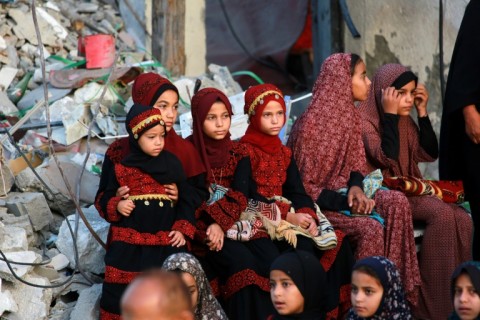
A daytime "pause" for aid deliveries around a southern Gaza route, announced at the weekend by Israel's military, appeared to be holding on Monday.
But witnesses told AFP they could hear blasts in the centre and west of the southernmost city of Rafah on Monday morning.
Elsewhere in the Palestinian territory an AFP correspondent said strikes and shelling have decreased.
In Gaza City, medics at Al-Ahli hospital said at least five people were killed in two separate air strikes, and witnesses reported tank shelling in the southern neighbourhood of Zeitun.
At least one strike hit Bureij refugee camp in the central Gaza Strip, residents said.
Palestinian officials in Rafah reported tank shelling early on Monday, before the start of the daily "local, tactical pause of military activity" announced by the army.
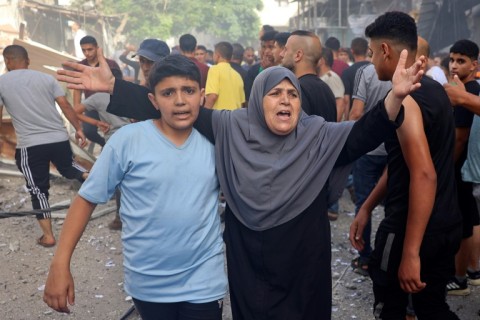
It said the pause "for humanitarian purposes will take place from 8:00 am (0500 GMT) until 7:00 pm (1600 GMT) every day until further notice along the road that leads from the Kerem Shalom crossing to the Salah al-Din road and then northwards".
Earlier, an Israeli official, speaking on condition of anonymity, told AFP "there was no change" in the military's policy and stressed fighting "continues as planned".
- 'Catastrophic hunger' -
An army spokesperson told AFP the pause was in effect on Monday, and the military in a statement said troops were still operating in Rafah and central Gaza, reporting "close-quarters combat" that killed several militants.
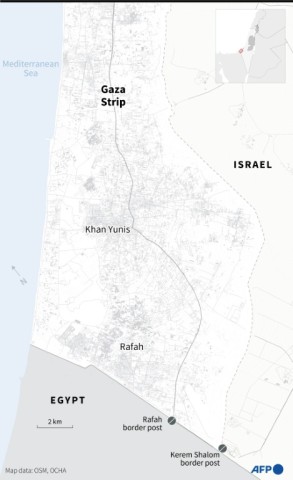
A map released by the army showed the declared humanitarian route extending up to Rafah's European Hospital, about 10 kilometres (six miles) from Kerem Shalom.
Mahmud Basal, spokesman for the civil defence agency in the Hamas-ruled territory, said that apart from the deadly Gaza City strikes overnight, "the other areas of the Gaza Strip are somewhat calm".
He reported military movements and gunfire in parts of Rafah as well as Bureij camp in central Gaza.
On Sunday, the first day of Eid al-Adha, or the Muslim feast of the sacrifice, the spokesman said "calm has prevailed across all of Gaza".
The Gaza health ministry said on Monday it had recorded 10 deaths over the past 24 hours, in one of the lowest daily tolls since the war began.
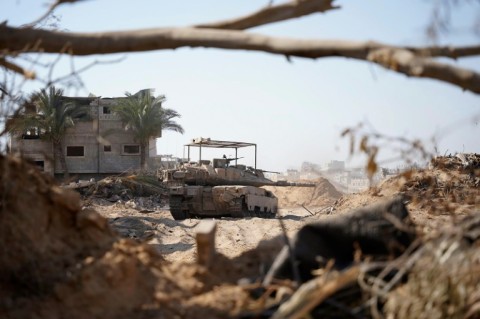
The United Nations welcomed the Israeli announcement of the pause, although "this has yet to translate into more aid reaching people in need", said Jens Laerke, spokesman for the UN humanitarian agency OCHA.
He called for "further concrete measures by Israel to address longstanding issues" on humanitarian needs.
Gazans "urgently need food, water, sanitation, shelter, and health care, with many living near piles of solid waste, heightening health risks," Laerke said.
Dire shortages of food and other essentials in the Gaza Strip have been exacerbated by overland access restrictions and the closure of the key Rafah crossing with Egypt since Israeli forces seized its Palestinian side in early May.
After discussion with US President Joe Biden that month, Egyptian President Abdel Fattah al-Sisi agreed to temporarily divert aid from Rafah by sending it into Gaza via Israel's nearby Kerem Shalom crossing.
Israel's military said the pause was in effect as part of efforts to "increase the volumes of humanitarian aid" following discussions with the United Nations and other organisations.
The head of the World Health Organization said last week that much of Gaza's population faces "catastrophic hunger and famine-like conditions."
- 'End the war' -
The pause was announced a day after eight Israeli soldiers were killed in a blast near Rafah and three more troops died elsewhere, in one of the heaviest losses for the army in more than eight months of war against Hamas Palestinian militants.
The war was triggered by Hamas's unprecedented October 7 attack on southern Israel that resulted in the deaths of 1,194 people, mostly civilians, according to an AFP tally based on Israeli official figures.
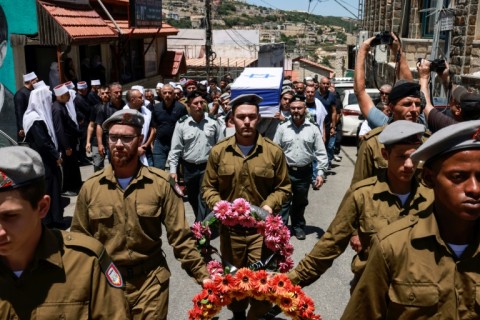
The militants also seized 251 hostages. Of these, 116 remain in Gaza, although the army says 41 are dead.
Israel's retaliatory offensive aimed at eliminating Hamas has killed at least 37,347 people in Gaza, also mostly civilians, according to the territory's health ministry.
In an Eid message late Sunday, US President Joe Biden called for the implementation of a ceasefire plan he outlined last month, saying it was "the best way to end the violence in Gaza" and to help civilians suffering "the horrors of the war between Hamas and Israel".
Egyptian, Qatari and US mediators have been pushing for a new Gaza truce, so far without success.
Biden's truce plan would bring an initial six-week pause to fighting.
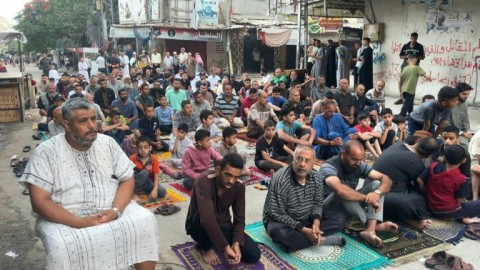
Hamas has insisted on the complete withdrawal of Israeli forces from Gaza and a permanent ceasefire -- demands Israel has repeatedly rejected.

